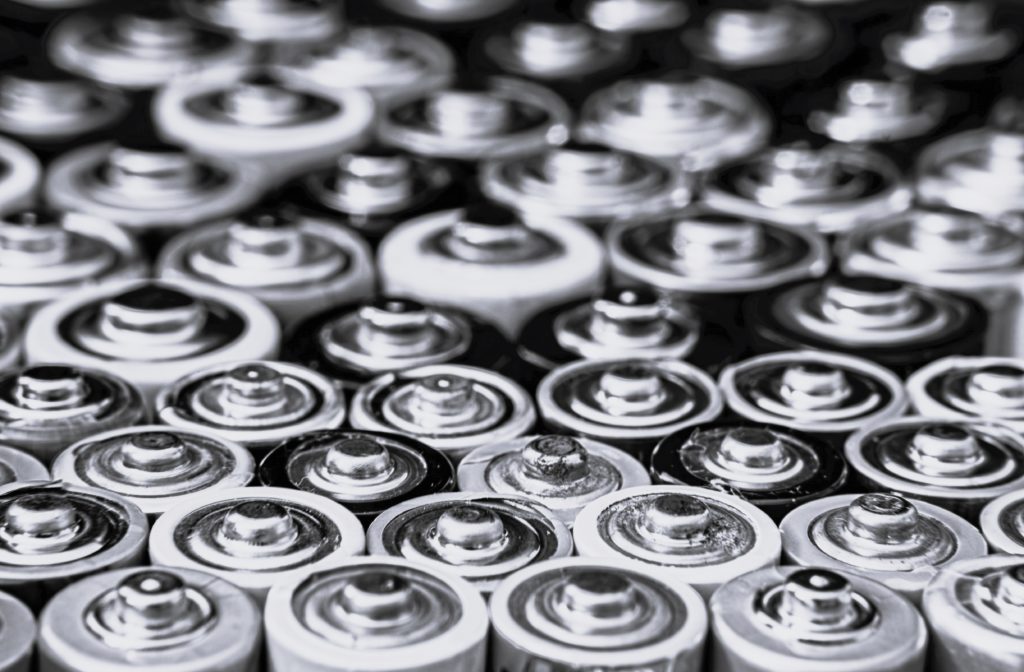

In this quarterly market update, we look to the US tech industry to see that while speculation looms that the Golden Age of Silicon Valley is over, with hiring freezes and layoffs looming in tech giants like Meta and Netflix, many industries like batteries and electric vehicles remain supercharged.
Passage of the inflation reduction act in August 2022, the largest climate and energy package in US history, has meant that battery industries are supported by a new 30% investment tax credit, and battery manufacturers are ramping up production across the US. Since the beginning of 2021, more than 15 new US lithium-ion battery gigafactories or expansions have been announced in the Battery Belt - clustered around the Midwest, South, and near Tesla facilities in California and Texas. By 2030, stationary and transportation energy storage combined markets are estimated to grow 2.5 to 4 terawatt-hours annually, an increase of 3-5 times the current rate.
The US has mandated all vehicles by 2035 to be electric, which leaves the battery industry fairly ‘recession-proof’ says Thomas Cafolla, Principal Consultant.
“The US doesn’t have major public transport infrastructure system like those in Europe. With the Government incentives and mandates around electric cars, automotive manufacturers need batteries. Battery engineers are necessary for the growth of automotive in the US,” he says.
Sam Pick, Principal Consultant, has seen first hand the ambitious expansion plans of his battery clients, with several opening new factories in Massachusetts, California and Texas.
“My sector isn’t slowing down anytime soon,” he says, “even with the few companies who have made some strategic layoffs, many are still open to seeing CVs.”
One company alone has sixteen active roles and another twenty on the back-burner, the majority of which are battery research and development roles.
Karen Robinson, Principal Consultant, has seen that as the technical side of the battery industry develops rapidly, the need for more highly skilled engineers has increased.
“These are highly niche, technical skillsets,” she says. With large car manufacturers like General Motors and Honda blitzing the market with electric cars to compete with the likes of Toyota and Tesla, the technological advancements in the way of faster charging and battery distance are evolving dramatically.
What this means, as Principal Consultant Nancy Miller attests, is that there are more jobs than qualified candidates. Candidates laid off from large car manufacturers like Tesla are snapped up quickly by competitors.
“Everybody wants the perfect battery engineer,” she says.
Many Californians are wishing to leave for more tax friendly and affordable cities like Texas and Michigan with the cost of living, high taxes and red tape precipitating the push. Yet their salary expectations remain high. Some companies are willing to increase salaries and offer attractive relocation packages to get them over the line, while those who won't budge find it harder to secure talent.
An experienced battery engineer in California may be on $160K paying 40% tax. While in Texas, they may achieve a $120K salary with a much lower tax rate and affordable cost of living.
The visa situation in the US means that offshore candidates are difficult to bring in to fill the talent shortage. The H1B visa, a non-immigrant visa allowing US companies to employ foreign workers in speciality industries that require niche skillsets, is paused until March 2023. With many offshore universities out of Vietnam, India and China teaching the skillsets required for the battery industry, there is a talent pool of qualified candidates who are available should the visa restrictions be dropped.
Unless the US implements radical visa reform, there will be supply issues remaining.
“There simply aren’t enough candidates as it’s quite a new space,” Thomas says. Some companies are coming up with innovative ways to reach headcount, being open to bridging visas from PhD graduates, as well as focussing on more accessible T-N visas for candidates in Canada and Mexico.
Internal training is key to filling the candidate shortage in the meantime. Thomas sees many engineering talents from manufacturing industries eager to make the move into the battery space.
The problem, says Karen, is that “a lot of companies don’t have the time to train engineers on niche skillsets- they need the experienced people now.”
Unsurprisingly, salary remains the leading factor in motivating a candidate to take a role. Graduate battery engineers have high expectations on their salaries, with many reaching salaries of up to $80K straight out of their master's degrees outside of California. In California, that number might reach $100K. Clients need to ensure they are keeping up with the inflation rate, currently at just over 8%, when it comes to salaries.
The biggest factor motivating candidates outside of salary, Thomas says, is company culture. Companies who are looking at ways to genuinely improve company culture have a better chance of securing candidates.
“Company culture starts with how people are respected and treated,” he says. Flat hierarchical structures and open door policies are becoming the norm.
He sees a trend in the US moving towards a European model of work-life balance. Some are offering increased holiday entitlements, while others are moving out of larger cities to cut down their employees' commute times and cost of living. One company has chosen to move out of central Boston for these reasons.
More than half of Americans worry about having enough money to retire, so some companies are offering 401K matching and other incentives to help their employees save for retirement. Stock packages, which are common in battery roles, can have huge positive consequences for employees. One of our candidates was recently given over twenty-thousand stocks priced at $6 each upon joining.
“It’s about the whole package,” says Nancy.
US candidates tend to job hop more frequently than their European counterparts to capitalise on opportunities. A candidate may have five interviews on the go, so companies need to move quickly.
“When I have a great candidate, companies need to move the process through within three weeks or they’ll lose out,” says Karen.
Over in the UK, many tech businesses offer hybrid or remote working. In the US, meanwhile, it’s more nuanced on state, industry and company. Thomas says that while some roles in battery industries can be done remotely, such as in management or simulation roles, the majority need to be done in person.
“No one really wants to be working on site full time,” says Karen. Yet this proves to be a bit of an issue for companies who require it or are unwilling to flex on it. Nancy has seen one company pay 30% more to demand their team in office full-time over their competitor 20 minutes down the road offering hybrid working.
The Forecast:
Ed Jackson, Director, forecasts that the business, which has grown exponentially over the last twelve months with more than twenty new hires in the last quarter, will continue to have “projects galore.”
“We are continuing to deliver on a grand scale,” he says.
While he says the question of a recession is more of a “when” than “if”, the business continues to have “plenty of roles to fill.”
If you would like to find out more about opportunities in the US or globally within niche tech industries, please get in touch with us.
Brighton Head Office
39 Upper Gardner Street
Brighton, BN1 4AN
United Kingdom
Company reg. 05924374
European Tech Recruitment SL
c/Jordi de Sant Jordi 12
bajo izq. 2
46022 Valencia
Spain
Company reg. B72490204
Huddersfield Office
Studio 6,
Friendly Street
Huddersfield
HD1 1RL
United Kingdom
European Recruitment BV
Laarderhoogtweg 25
Amsterdam, The Netherlands
1101 EB
Company reg. 76228673
Munich Office
Franz-Joseph-Str. 11
Munich, Germany
808081